Preferential Voting in Fadden
Below is a data visualisation showing how preferential voting works, using the examples of two recent elections in the Fadden electorate.
Who determines preferences?
The important thing to remember is you, the voter determine your 2nd, 3rd, 4th, ... preferences. "How-to-vote" cards are just suggestions. You don't have to follow them, and if you do, you may end up helping vote for someone you don't really want as your representative.
Candidate order, percentages and colours shown
The order of the candidates on the chart is the ballot paper order. (This is important because some people perform a "donkey vote", where they just number their ballot paper starting from 1 at the top. Very irresponsible.)
Percentages given are based on the total number of formal votes for each candidate. (Informal votes are ones that are incomplete, not filled in at all, identify the voter, or ambiguous).
The colours used in the visualisation are the Party colours, where known.
Usage
Click the "Next" button at the bottom right of the chart to move on to the next part of the process - either the next count, or distribution of preferences.
There's an information area below the chart with explanations.
Select "Show voters" for a case study of 3 'typical' voters who for various reasons do not vote for the major parties. Below the chart you'll see their completed ballot papers (if "Show voters" is selected) and the visualisation follows how their preferences flow.
Choose election:
Voters
Following are the ballot papers of imaginary but "typical" voters who are disaffected by the two-party system and are looking for a new way of doing politics.
2022 Federal Election
Ballot papers
Dani's ballot paper
Dani did a "reverse donkey vote", starting from the bottom.
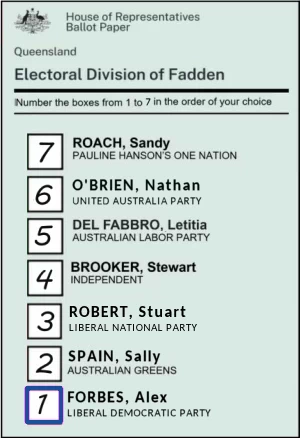
Gemma's ballot paper
Gemma followed the Green's How-to-vote card.
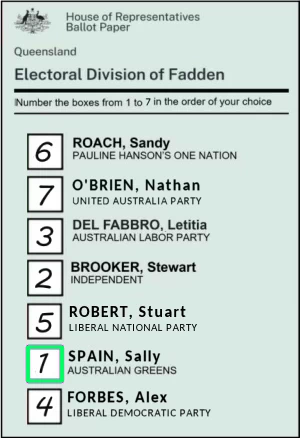
Isla's ballot paper
Isla wanted to vote for someone outside the major parties who took climate change seriously.
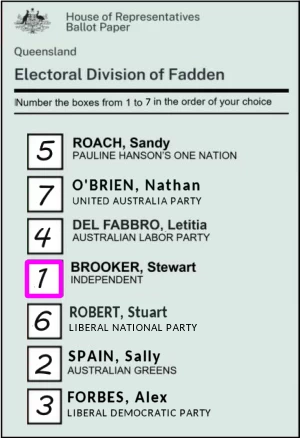
2023 Fadden By-election
Ballot papers
Dani's ballot paper
Dani followed the Democrat's How-to-vote card.
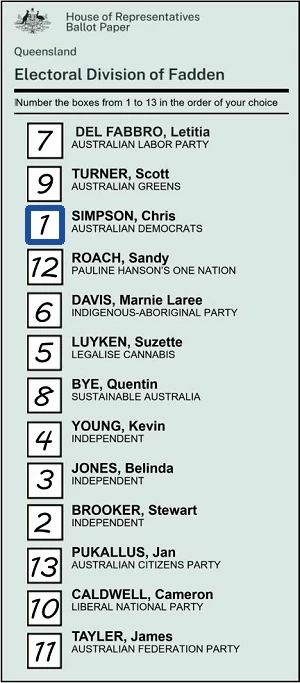
Gemma's ballot paper
Gemma followed the Green's How-to-vote card.
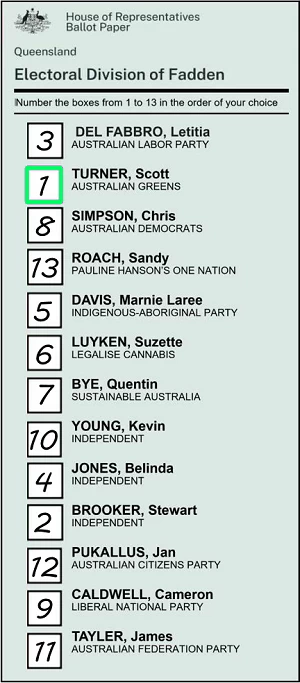
Isla's ballot paper
Isla wanted to vote for someone who took climate change seriously, was keen to fix integrity issues in politics, and was a strong advocate for women.
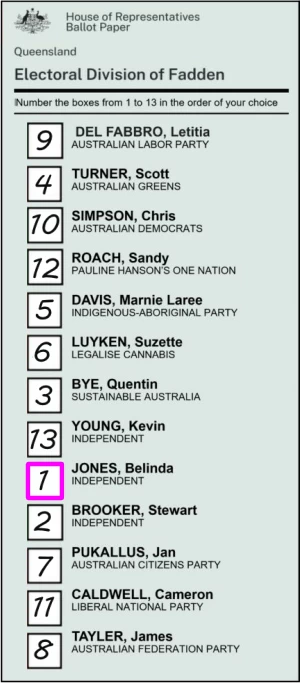
Observations and info
In both the elections shown, there would be no difference if "first past the post" voting was in play, unless most voters wrote "2" next to the second contender (ALP in both cases). However, this would be very unlikely.
Preferential voting only becomes significant if there are two candidates with very similar first preference votes.